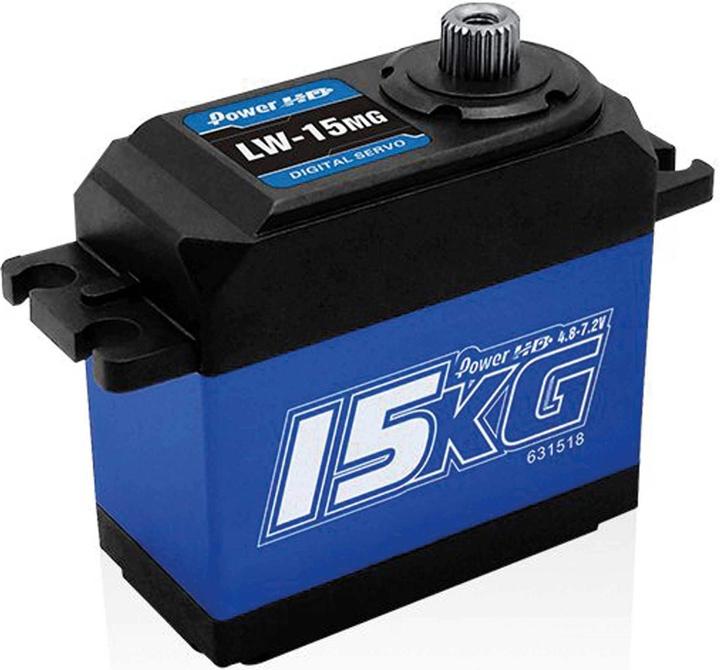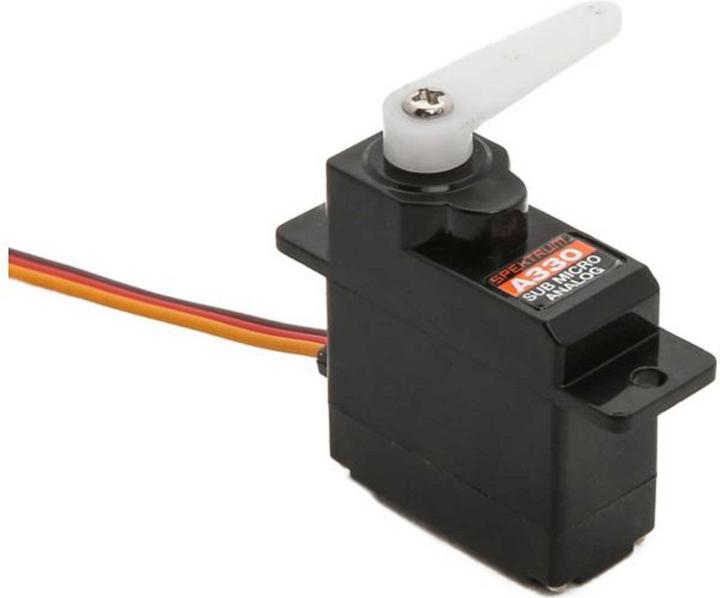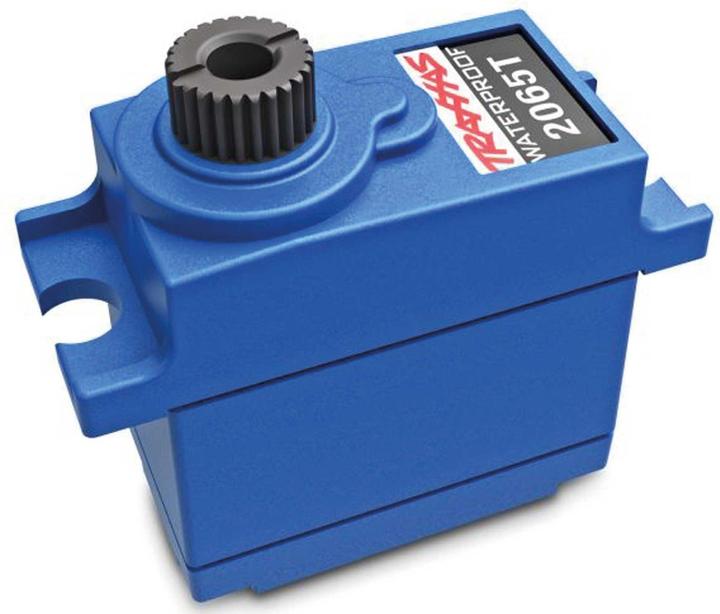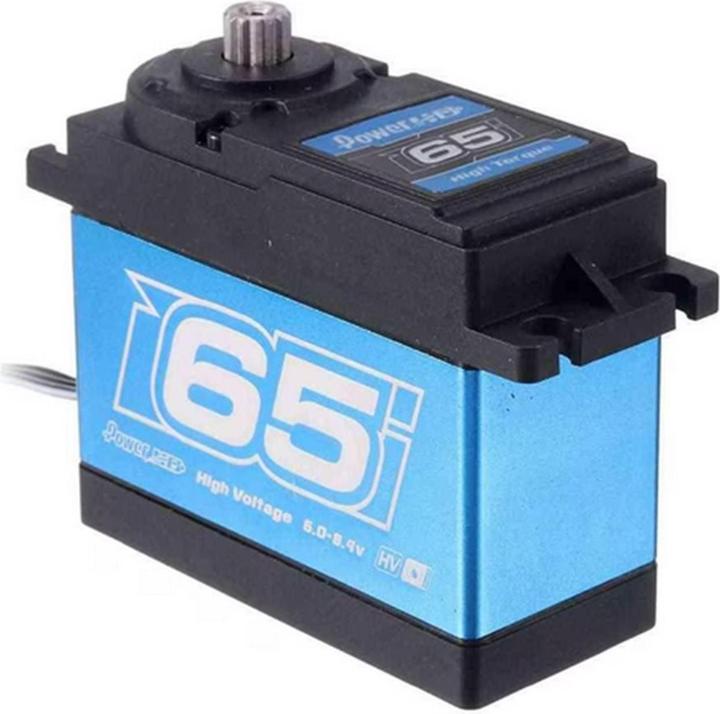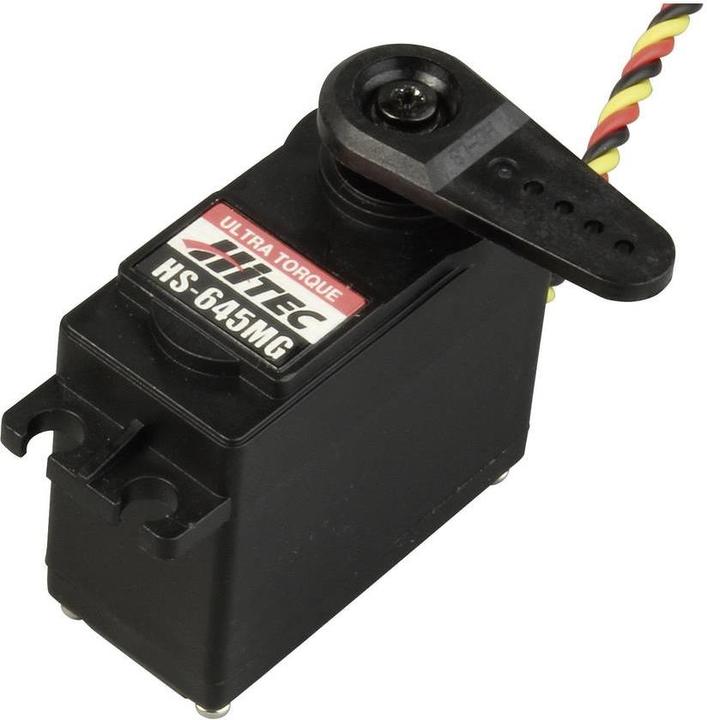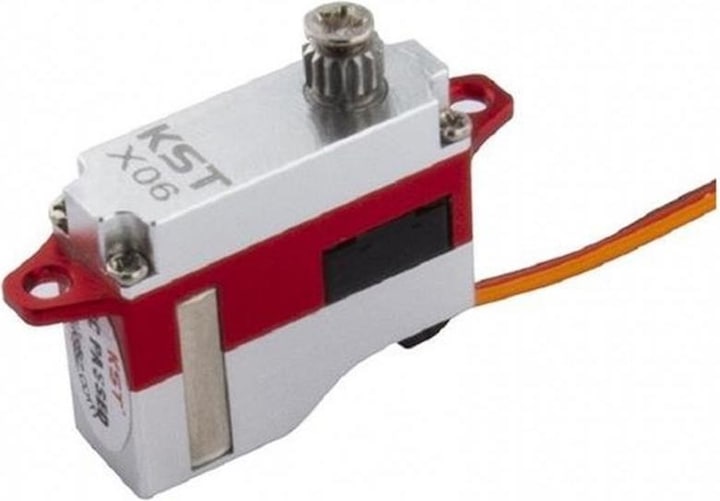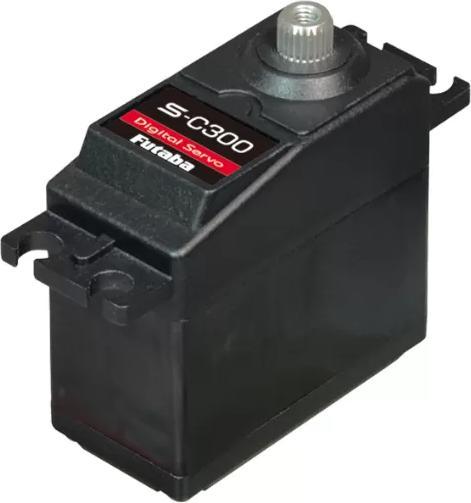
Too Many RC Servos? Here's How to Choose the Right One
Discover five key aspects to consider when selecting the perfect RC servo for your needs.
Last updated 1 day ago. Automatically generated content.


Select options and limit the number of products
Moment of force in RC servos refers to the torque output they can produce, crucial for determining the servo's ability to move or hold loads effectively. Selecting the appropriate torque level ensures optimal performance in your specific application, whether it's for a lightweight model or a heavy-duty task.
Popular options
26 - 50 kgf·cm
Typical price
63.– to 120.–Delivers high torque, perfect for demanding applications that require significant force.
Best for large-scale models or heavy-duty tasks, ensuring robust control and stability even under stress.
Bestseller
The servotype determines the size and function of the RC servo, influencing compatibility and performance with various models or applications. Selecting the appropriate servotype ensures optimal operation and integration, enhancing the effectiveness of your RC setup.
Popular options (you can select more than one)
Standard servo
Typical price
31.– to 97.–Typically larger and more powerful, suitable for general-purpose applications.
Ideal for larger RC models, offering robust performance and reliability in various conditions.
Bestseller
Mini servo
Typical price
18.– to 77.–Smaller in size with moderate power, fitting compact spaces.
Perfect for smaller RC models or tight installations, providing efficient control without excessive weight.
Bestseller
Micro servo
Typical price
7.80 to 29.–Features a very small and lightweight design, with limited torque.
Best for ultra-lightweight applications, ensuring precise movements in miniature models or robotics.
Bestseller
Special servo
Typical price
52.– to 260.–Customized for specific tasks, offering unique features like high torque or waterproofing.
Recommended for specialized needs, such as robotics or challenging environments, delivering tailored performance.
Bestseller
Servo technology refers to the method a servo uses to receive and process signals to control movement. It is crucial for determining the precision and efficiency of the servo's performance, directly impacting the responsiveness and accuracy in applications like robotics and RC models.
Popular options (you can select more than one)
Digital
Typical price
32.– to 90.–Processes signals using a microprocessor for higher precision and faster response.
Ideal for applications requiring quick and accurate movements, enhancing performance in competitive RC models.
Bestseller
Analogue
Typical price
12.– to 30.–Uses variable resistor and capacitor networks to process signals, providing smoother operation.
Suitable for less demanding applications, offering reliable performance at a lower cost, making it a good choice for beginners.
Bestseller
Servo speed refers to the time a servo takes to rotate a specific angle, typically 60 degrees. It plays a crucial role in applications requiring quick maneuvers or precise control, impacting the overall performance and responsiveness of your RC model.
Popular options
Up to 0.1 s
Typical price
39.– to 110.–Delivers fast rotation, completing 60 degrees in 0.1 seconds.
Ideal for high-speed applications, offering swift and precise movements, such as in racing or aerobatic models.
Bestseller
0.11 - 0.15 s
Typical price
26.– to 83.–Provides a balanced speed suitable for most standard RC applications.
Offers reliable performance for general use, combining efficiency with sufficient speed for everyday tasks.
Bestseller
0.16 - 0.2 s
Typical price
33.– to 69.–Slower rotation speed, taking up to 0.2 seconds for 60 degrees.
Best for applications where smooth and controlled movements are prioritized, such as in scale models or photography setups.
Bestseller
The brand factor in RC servos influences performance, durability, and compatibility with various models. Established brands like Futaba and Power HD are known for high precision and reliability, which can enhance the overall experience and outcomes for hobbyists and professionals alike.
Popular brands (you can select more than one)
Power HD
Renowned for producing high-quality servos with excellent torque and precision.
Preferred by users who require reliable performance for demanding applications such as robotics and RC vehicles.
Bestseller
KST
Known for its robust metal gear servos that offer durability and precision.
Great choice for users looking for long-lasting performance in harsh conditions such as competitive racing.
Bestseller
Futaba
Highly regarded for its innovative technology and consistent quality in servos.
Trusted by professionals for critical applications requiring high reliability and precision.
Bestseller
